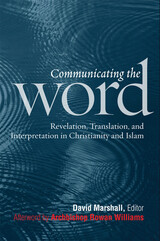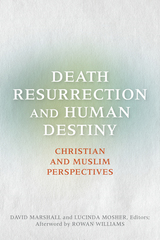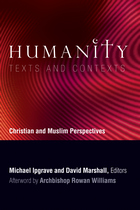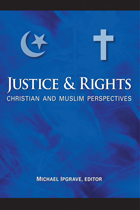
Building a Better Bridge is a record of the fourth "Building Bridges" seminar held in Sarajevo in 2005 as part of an annual symposium on Muslim-Christian relations cosponsored by Georgetown University and the Archbishop of Canterbury. This volume presents the texts of the public lectures with regional presentations on issues of citizenship, religious believing and belonging, and the relationship between government and religion—both from the immediate situation in Bosnia-Herzegovina and from three contexts further afield: Britain, Malaysia, and West Africa.
Both Christian and Muslim scholars propose key questions to be faced in addressing the issue of the common good. How do we approach the civic sphere as believers in particular faiths and as citizens of mixed societies? What makes us who we are, and how do our religious and secular allegiances relate to one another? How do we accommodate our commitment to religious values with acknowledgment of human disagreement, and how can this be expressed in models of governance and justice? How are we, mandated by scriptures to be caretakers, to respond to the current ecological and economic disorder of our world?
Michael Ipgrave and his contributors do not claim to provide definitive answers to these questions, but rather they further a necessary dialogue and show that, while Christian and Islamic understandings of God may differ sharply and perhaps irreducibly, the acknowledgment of one another as people of faith is the surest ground on which to build trust, friendship, and cooperation.

Communicating the Word is a record of the 2008 Building Bridges seminar, an annual dialogue between leading Christian and Muslim scholars convened by the Archbishop of Canterbury. Featuring the insights of internationally known Christian and Muslim scholars, the essays collected here focus attention on key scriptural texts but also engage with both classical and contemporary Islamic and Christian thought. Issues addressed include, among others, the different ways in which Christians and Muslims think of their scriptures as the “Word of God,” the possibilities and challenges of translating scripture, and the methods—and conflicts—involved in interpreting scripture in the past and today.
In his concluding reflections, Archbishop Rowan Williams draws attention to a fundamental point emerging from these fascinating contributions: “Islam and Christianity alike give a high valuation to the conviction that God speaks to us. Grasping what that does and does not mean . . . is challenging theological work.”

Death, Resurrection, and Human Destiny: Christian and Muslim Perspectives is a record of the 2012 Building Bridges seminar for leading Christian and Muslim scholars, convened by Rowan Williams, then Archbishop of Canterbury. The essays in this volume explore what the Bible and Qurān—and the Christian and Islamic theological traditions—have to say about death, resurrection, and human destiny. Special attention is given to the writings of al-Ghazali and Dante. Other essays explore the notion of the good death. Funeral practices of each tradition are explained. Relevant texts are included with commentary, as are personal reflections on death by several of the seminar participants. An account of the informal conversations at the seminar conveys a vivid sense of the lively, penetrating, but respectful dialogue which took place. Three short pieces by Rowan Williams provide his opening comments at the seminar and his reflections on its proceedings. The volume also contains an analysis of the Building Bridges Seminar after a decade of his leadership.

Humanity: Texts and Contexts is a record of the 2007 Singapore “Building Bridges” seminar, an annual dialogue between Muslim and Christian scholars cosponsored by Georgetown University and the Archbishop of Canterbury. This volume explores three central questions: What does it mean to be human? What is the significance of the diversity that is evident among human beings? And what are the challenges that humans face living within the natural world?
A distinguished group of scholars focuses on the theological responses to each of these questions, drawing on the wealth of material found in both Christian and Islamic scriptures. Part one lays out the three issues of human identity, difference, and guardianship. Part two explores scriptural texts side by side, pairing Christian and Islamic scholars who examine such themes as human dignity, human alienation, human destiny, humanity and gender, humanity and diversity, and humanity and the environment. In addition to contributions from an international cast of outstanding scholars, the book includes an afterword by Archbishop Rowan Williams.

Justice and Rights is a record of the fifth "Building Bridges" seminar held in Washington, DC in 2006 (an annual symposium on Muslim-Christian relations cosponsored by Georgetown University and the Church of England). This volume examines justice and rights from Christian and Muslim perspectives—a topic of immense relevance for both faiths in the modern world, but also with deep roots in the core texts of both traditions.
Leading scholars examine three topics: scriptural foundations, featuring analyses of Christian and Muslim sacred texts; evolving traditions, exploring historical issues in both faiths with an emphasis on religious and political authority; and the modern world, analyzing recent and contemporary contributions from Christianity and Islam in the area of freedom and human rights.
READERS
Browse our collection.
PUBLISHERS
See BiblioVault's publisher services.
STUDENT SERVICES
Files for college accessibility offices.
UChicago Accessibility Resources
home | accessibility | search | about | contact us
BiblioVault ® 2001 - 2024
The University of Chicago Press









